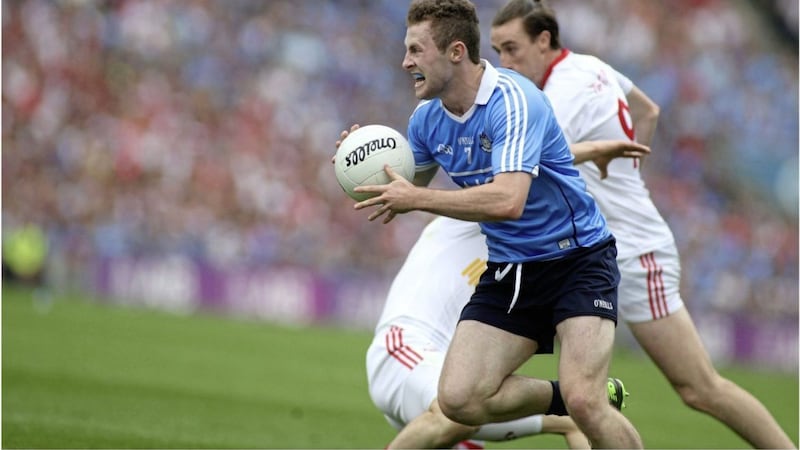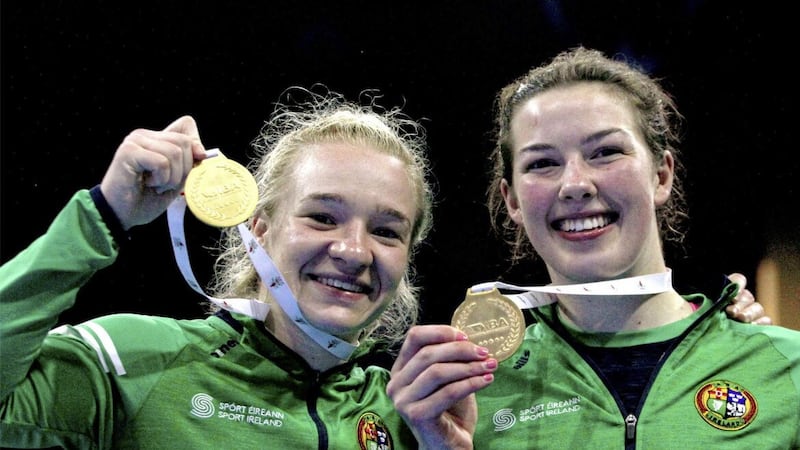IF you get a chance, lock the kids outside (only if the weather’s half decent), find a recording of Saturday’s Bledisloe Cup game and take two hours to watch it.
The first test between New Zealand and Australia the previous weekend was a complete whitewash. Seven minutes into the second half, the All Blacks led 54-6 and were unleashing all the tricks and flicks against an insipid opponent.
But the real test of a great team is when the pressure comes on. On Saturday, Australia brought a real challenge, and were 17-0 up in no time.
With ten minutes left, New Zealand were back within a point. They went through 22 phases without a single handling error before touching down to go ahead.
Still it wasn’t done as the Aussies responded instantly with a Kurtley Beale try right under the posts.
With just over two minutes left, any mistake would have been critical. Just outside the Australian 22’, three replacements and a back-row forward combined to create a mesmerising match-winning try.
There was absolutely no margin for error, and they didn’t make one. When the quickest, most delicate of hands were needed, they were able to go that well and pull them out.
We’ve seen them do it so, so often. Who could ever forget the try they worked that afternoon in Dublin four years ago to snatch a comeback win in a game that they’d been 19-0 down in?
They do their gym work but New Zealand rugby’s development structures are based around skills first, bulk second.
That commitment to the basic skills is why they are so far ahead of everyone else. That is why they are able to pull games from the fire, from positions that nobody else would rescue victory from.
In 2015, two times Lions captain Sam Warburton highlighted the difference between the approach to coaching in the northern and southern hemispheres.
“They do the simple things really well, like running straight, carrying well, hitting rucks, placing the ball correctly at rucks and passing accurately.
“At 16 I was taught to jackal, make good tackles and do my lineout work. But New Zealanders are so good at making three on twos count – I was probably about 20 when I realised I had to draw somebody and time my pass.”
And it showed at the last World Cup, where the four semi-finalists were New Zealand, Australia, South Africa and Argentina, all of whom played a much more dashing, adventurous game than their northern counterparts.
The way Gaelic football has gone over the past 18 months is almost a replica. Ulster football is, whether we like it or not, still trying to bludgeon its way through like a Six Nations contender, while Dublin and Mayo will be playing in September because of the adventure and ability they’ve displayed over the last two months.
You can talk about funding and money and semi-professional lifestyles but all that does is take focus away from how brilliant they are at the basic skills of Gaelic football.
Two wides Dublin kicked in 75-odd minutes of an All-Ireland semi-final, one of them a goal chance that whistled past the top corner of Niall Morgan’s goal.
When Mick Bohan was their skills coach, he introduced the 36-shot challenge. Each player took 18 shots off their right foot and 18 shots off their left.
In an interview last year, he revealed that Eoghan O’Gara went from having “no left foot” in 2011 to scoring 33 shots from 36 in that drill two nights before the 2013 All-Ireland final.
Pure hard work and repetition brought him to that point. Nothing else.
Tyrone went out on Sunday searching for turnovers and created just seven of them in the whole game. That stat actually seems higher than the reality, for it seemed like Dublin never gave the ball away.
For all the athleticism and game-smarts they’ve built up, it’s their mastery of the ball itself that allows Dublin to really suck every ounce of your lifeblood out of you.
Midway through the first half with Tyrone desperately needing something, Tiernan McCann thought he was through a pocket into the Dublin 45.
Dips low to gather the solo but as his hands come up, he finds no ball to grab. Paul Mannion, of all people, has chopped it away in mid-air.
When you consider that workrate and that quality of a tackle from Dublin’s second top scorer this summer, then you see what it is to try and beat them.
Look at Jack McCaffrey every time he sets off. We’ve all seen fellas that can run the 100 metres in 12 seconds that when they take off on a football field, they’ll fall over themselves trying to solo a ball. Not him, though.
You can argue that the funding facilitates the lifestyle that facilitates the free time to hone those skills to that degree but that takes away from the hours upon hours spent perfecting that level of skill.
The GAA could give every county in Ireland €20m but it wouldn’t make any difference unless there is a change in emphasis back towards favouring the basic skills of the game.
There are definite signs that there is a changing trend. Derry minors were superb on Sunday. They played the same way as each of the previous two teams that Damian McErlain has sent out.
They pressed and harassed the Dublin kickout to the point of destruction. They work exceptionally hard on their kick-passing. It’s almost like a throwback to letting the ball do the work.
Gaelic football is opening out again. Look at how Mayo have been using the kick-pass this summer. Instead of fearing the impact of sweepers on such a style, the top counties have really honed in on finding a way to bypass them.
That, in turn, has negated their influence and almost forced the return of something resembling man-to-man combat.
All of which suits Dublin, because they work harder at the basics and attacking than anybody else.








